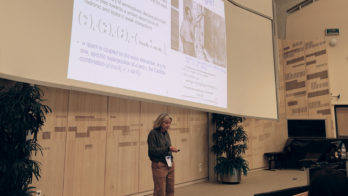K2K, the KEK to Kamioka long-baseline neutrino-oscillation experiment, has announced results based on data collected from the start-up in 1998 through to February 2004. During this time the experiment, which uses the underground Super-Kamiokande detector to record the interactions of a beam of neutrinos generated about 250 km away at KEK, in Tsukuba, has observed 108 beam-induced neutrino interactions.
In the absence of neutrino oscillations, in which one type of neutrino can change to another, the expected number of such events would be 150.9+11.6-10.0. The observations therefore show a deficit consistent with the oscillation effects previously reported by Super-Kamiokande using data from naturally produced (atmospheric) neutrinos. K2K also reported the first significant evidence for the energy dependence of the oscillation effect. Taking into account measurements of the beam obtained from “near” detectors on the KEK site, the probability that the observed data are consistent with the hypothesis of no oscillations, and hence massless neutrinos, is negligible at 10-4.
The Super-Kamiokande detector suffered a major accident in November 2001 when many of its 11 200 photomultiplier tubes were destroyed. Rebuilding began during 2002 so that operation of the K2K experiment could re-start in January 2003, albeit with a reduced detector. The K2K collaboration expects to increase the number of observed events in a run starting in October 2004 and ending before the anticipated shutdown of the KEK proton accelerator in 2005. These additional data will include special studies to refine plans for the next-generation experiment, T2K (Tokai to Kamioka), at the new J-PARC accelerator facility under construction in Tokaimura, Japan. A new scintillating bar detector system – SciBar – was installed in the K2K “near” detector and commissioned in September 2003. Scibar is intended in part as an in-service prototype for a critical detector element in the T2K experiment.





